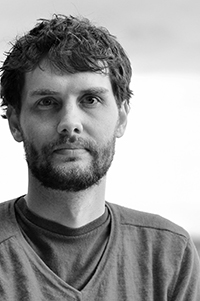Philosophy Spotlight - April 2016
 Kansas State Philosophy Professor Rosa Terlazzo won a prestigious Murphy Fellowship, which supports a year in residence at the Center for Ethics and Public Affairs at Tulane. During her stay there, Terlazzo will be developing material for a book on the ramifications of adaptive preferences, with special reference to children and education policy. Her project is entitled “Adaptive Preferences, Transformative Experience, and Well-being”.
Kansas State Philosophy Professor Rosa Terlazzo won a prestigious Murphy Fellowship, which supports a year in residence at the Center for Ethics and Public Affairs at Tulane. During her stay there, Terlazzo will be developing material for a book on the ramifications of adaptive preferences, with special reference to children and education policy. Her project is entitled “Adaptive Preferences, Transformative Experience, and Well-being”.
Adaptive preferences are formed in response to constraints on what is effectively achievable, especially external constraints imposed by cultural norms. When these constraints foreclose options unjustly (say as a result of prejudice, stereotype or inequality), ethical problems arise. Another set of problems arises in education, because education is a transformative experience that both enables children to choose which interests and talents to develop, but also constrains those choices.
While at the Center, Terlazzo will explore the philosophic, ethical and policy implications that arise at the intersection of adaptive preferences and transformative experiences.
 Philosophy Professor Jonathan Herington won a Brocher residency for the summer of 2017. Herington will spend a month in residence in Geneva at the Brocher Foundation working with academics and NGO representatives focusing on health security.
Philosophy Professor Jonathan Herington won a Brocher residency for the summer of 2017. Herington will spend a month in residence in Geneva at the Brocher Foundation working with academics and NGO representatives focusing on health security.
His project - “Health Security and Global Public Health Emergencies” - is most closely concerned with the relative importance of responses to public health emergencies, such as Ebola and Zika outbreaks, as opposed to longer term policies to control sustained threats to public health, such as efforts to control malaria.
Policies of both kinds influence health security. When resources are limited, tradeoffs between the two kinds of policies must be made so as to maximize health security. Professor Herington’s project seeks to determine the optimal tradeoff under various conditions.
